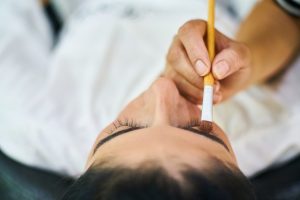Laser Skin Treatments represent a groundbreaking advancement in dermatology, offering precise, non-invasive solutions for acne. Using concentrated light energy, these treatments target bacteria, minimize inflammation, and stimulate collagen production with minimal downtime. Various laser types, like IPL for mild cases and CO2/Er:YAG for severe acne, ensure long-lasting results. By leveraging low-level laser therapy (photobiomodulation), lasers improve skin texture, reduce inflammation, and unclog pores. Compared to conventional methods, laser therapy offers precise targeting, fewer side effects, and faster recovery times. Popular options include pulsed dye lasers (PDLs) and non-ablative lasers, with selection of a certified clinic crucial for safe, effective treatment.
“Discover the power of Laser Acne Treatments—a revolutionary approach to achieving clear, healthy skin. This comprehensive guide explores the ins and outs of understanding laser therapy for acne, from its underlying mechanisms to the diverse range of lasers used.
Uncover the myriad benefits, safety considerations, and potential side effects, as well as expert tips on choosing the right clinic. Whether you’re a skincare enthusiast or a professional seeking solutions, this article offers a detailed overview of how laser skin treatments can transform your complexion.”
Understanding Laser Acne Treatments: A Comprehensive Overview
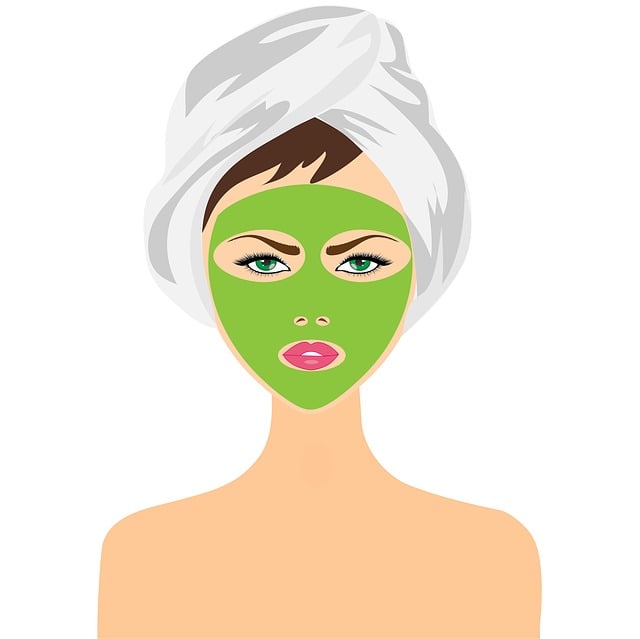
Laser acne treatments have emerged as a cutting-edge approach in dermatology, offering precise and effective solutions for stubborn acne. Unlike traditional methods that often involve topical medications or invasive procedures, laser skin treatments focus on targeting specific concerns within the skin’s depths. By utilizing concentrated light energy, lasers can effectively reduce acne-causing bacteria, minimize inflammation, and stimulate collagen production.
These advanced treatments work by penetrating the skin’s surface to reach the source of acne. Different types of lasers are employed based on the severity of the condition and patient needs. For instance, intense pulsed light (IPL) therapy is suitable for mild to moderate cases, while more robust lasers like CO2 or Er:YAG might be required for severe acne. The procedure is typically non-invasive, painless, and requires minimal downtime, making it an attractive option for individuals seeking long-lasting results without the side effects often associated with topical treatments.
How Do Laser Skin Treatments Work for Acne?
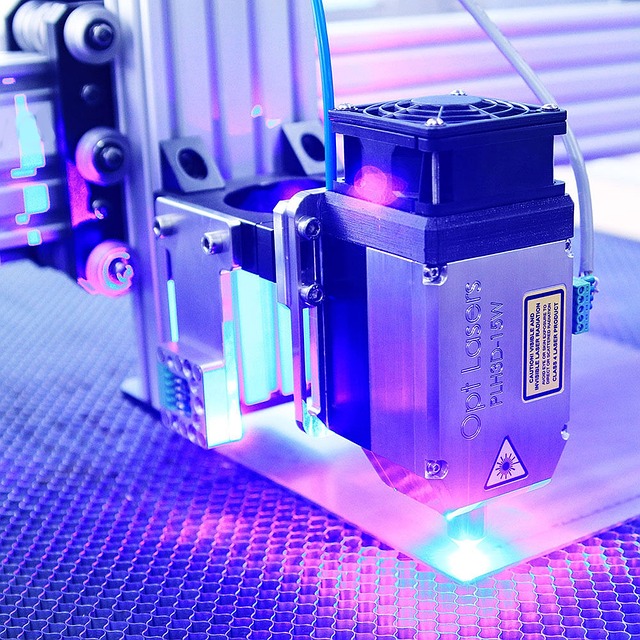
Laser skin treatments for acne work by targeting specific cellular processes within the skin that contribute to acne formation. Low-level laser therapy, also known as photobiomodulation, uses light energy to stimulate collagen production and promote skin cell regeneration. This process helps to improve skin texture, reduce inflammation, and unclog pores, all of which are key factors in managing acne.
During a typical session, the laser emits gentle light into the skin, penetrating the upper layers without causing significant damage. This light is absorbed by specific chromophores in the skin, such as melanin and hemoglobin, which then convert the light energy into cellular signals that enhance healing and reduce acne lesions. The result is smoother, clearer skin with fewer blemishes over time.
Benefits and Advantages of Choosing Laser Therapy for Acne
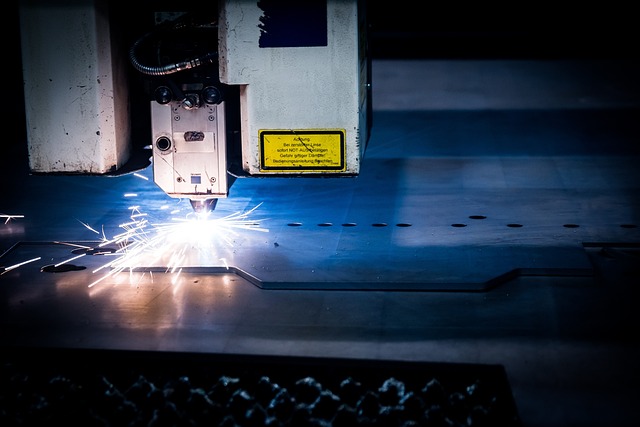
Laser therapy for acne offers several significant advantages over traditional treatments, making it an increasingly popular choice for those seeking clear and healthy skin. One of the key benefits is its ability to target specific areas of concern with precision, allowing for more effective clearing of acne lesions while minimizing side effects. Unlike topical medications that can cause irritation or dryness, laser treatments often leave the surrounding skin untouched, promoting faster healing and reduced downtime.
Additionally, laser skin treatments provide a long-lasting solution by reducing the number of acne-causing bacteria on the skin’s surface and within pores. This not only improves existing acne but also helps prevent future breakouts. The non-invasive nature of the procedure makes it an attractive option for individuals who prefer to avoid needles or chemical solutions. Moreover, laser therapy is suitable for various skin types and tones, making it a versatile choice for anyone struggling with acne.
Different Types of Lasers Used in Acne Treatment
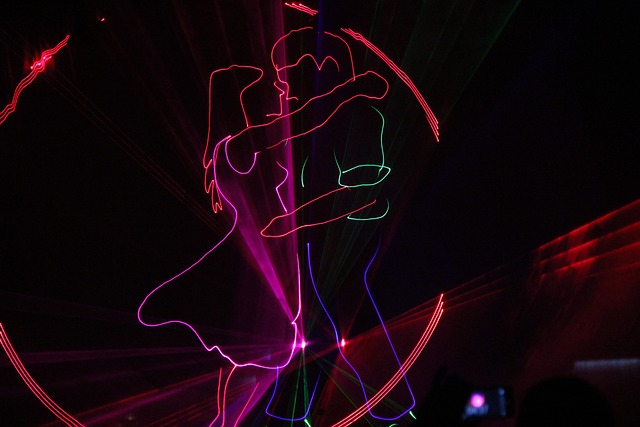
In the realm of laser skin treatments, various types are employed for acne management, each with unique advantages and applications. The most common lasers include pulsed dye lasers (PDLs) and non-ablative lasers. PDLs target and break up the red and orange pigment in acne scars and inflamed tissue, reducing their visibility. This type of laser treatment is particularly effective for red or pink acne lesions and post-inflammatory hyperpigmentation.
Non-ablative lasers, on the other hand, heat the skin to stimulate collagen production and repair damaged tissue without removing the outer layer. This results in improved skin texture and a reduction in both acne lesions and scarring. The non-invasive nature of these laser treatments makes them appealing for individuals seeking minimal downtime and improved skin health.
Safety and Side Effects: Addressing Common Concerns
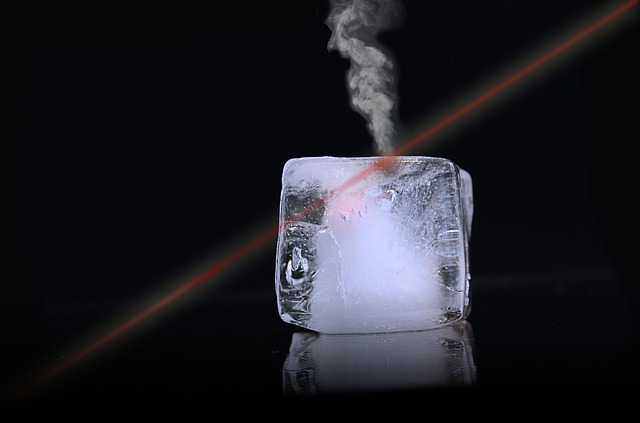
Laser skin treatments, while effective for acne, should be approached with caution due to potential safety concerns and side effects. It’s crucial to understand that laser therapy involves targeting skin cells with concentrated light energy, which can lead to temporary redness, swelling, and even changes in skin pigmentation. These side effects are usually mild and subside within a few days, but individuals with sensitive skin may experience more significant reactions.
To mitigate risks, it’s essential to choose a qualified dermatologist or skincare specialist who uses approved laser technology. They will provide pre-treatment consultations, ensuring your suitability for the procedure and offering guidance on managing any side effects. Regular follow-up appointments are also vital to monitor progress and address any issues promptly, ensuring safer and more effective laser acne treatments.
Finding the Right Clinic: Tips for Effective Laser Acne Therapy
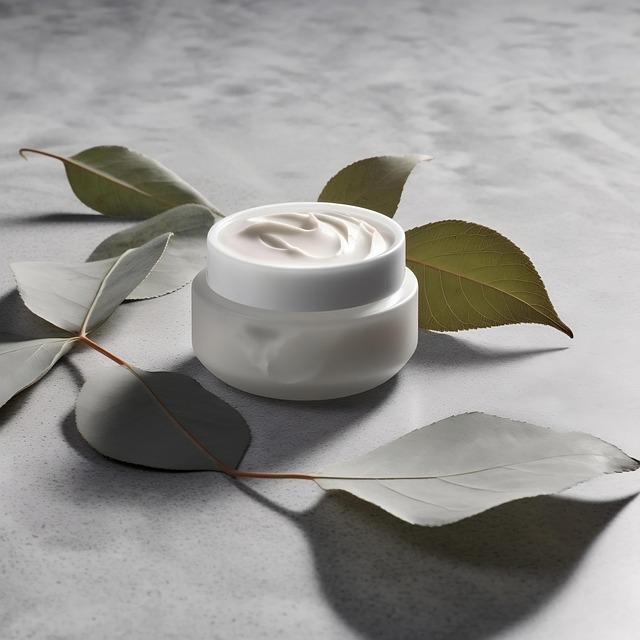
When considering laser acne treatments, choosing the right clinic is paramount for effective results. Look for establishments that specialize in dermatology and have experienced staff certified in laser skin treatments. Reputable clinics should offer a range of options, from low-level laser therapy to more intense pulsed dye lasers, allowing them to tailor the treatment to your specific needs. Check online reviews and ask for patient testimonials to gauge their satisfaction levels.
Before scheduling an appointment, ensure the clinic provides comprehensive consultations. During this meeting, discuss your acne history, any medications you’re taking, and your expectations. A good clinic will also take before-and-after photos to track progress. Additionally, inquire about safety measures, potential side effects, and recovery times to make an informed decision.
